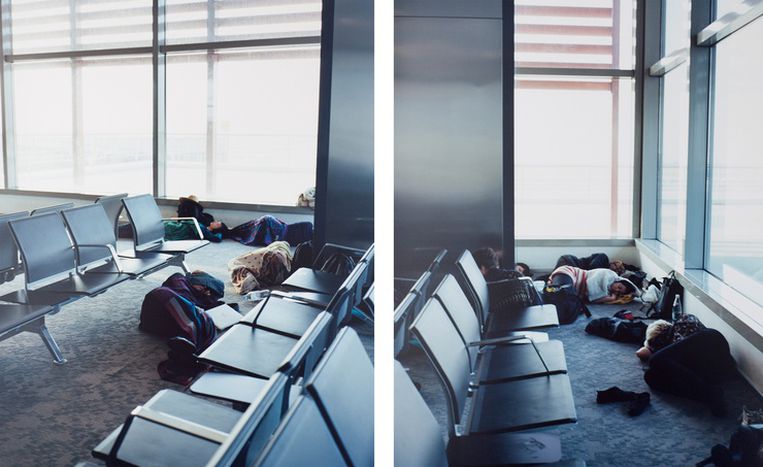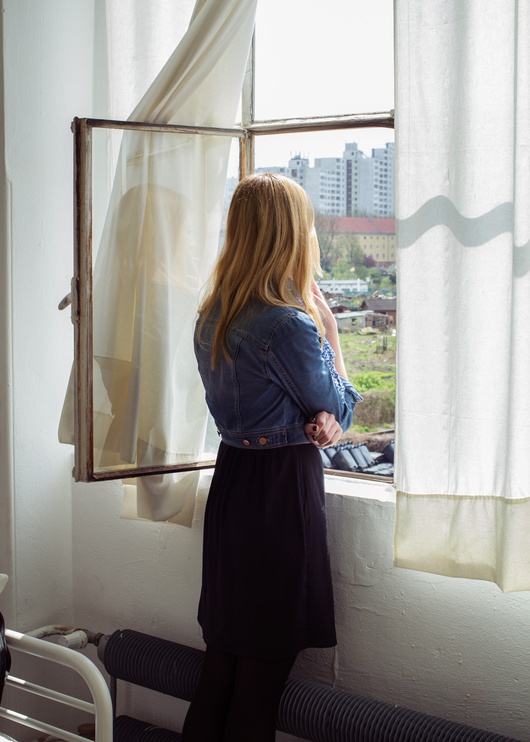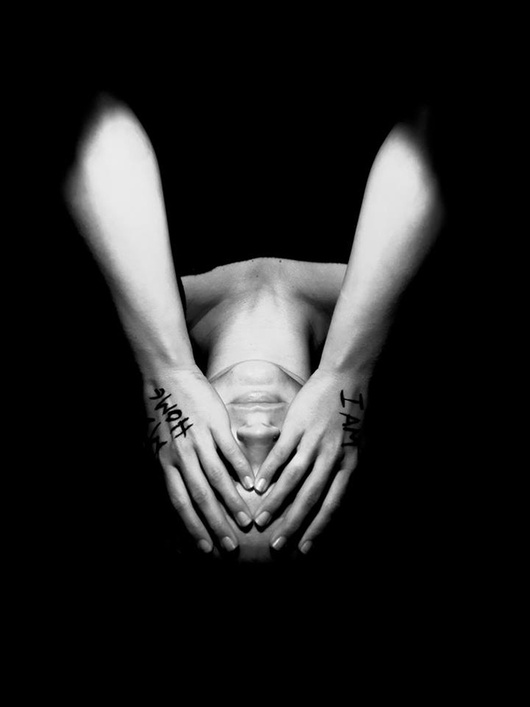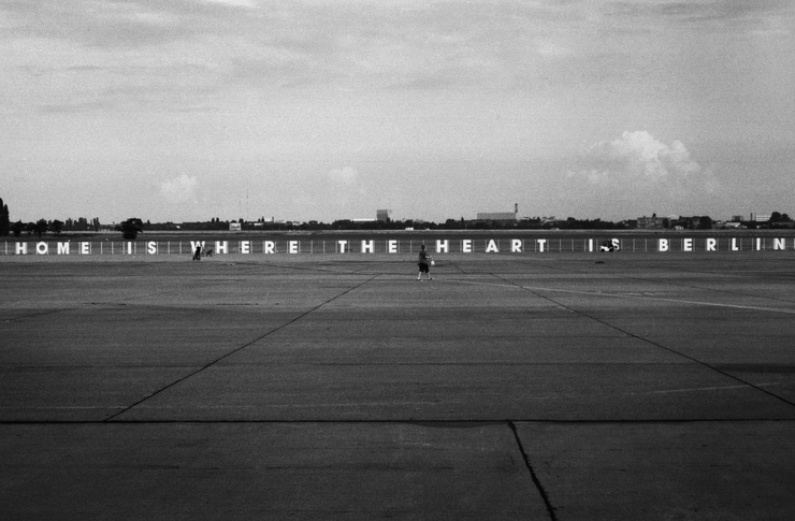
SECOND HOME: The grand finale
Published on
Translation by:
 Danny S.
Danny S.
For two years Cafébabel Berlin was involved with the "Second Home" project, which is now coming to a close. The photo competition and exhibition, which were in both the betahaus and the Centre Marc Bloch, revolved around the stories of young Europeans who try to find a new home in the face of the economic crisis. But this was done through pictures rather than text.
Everything at the panel discussion at the french research center Centre Marc Bloch on April 10, 2014 revolved around the photographer Jean-Paul Pastor Guzmán, the winner of the Second Home photo competition. At length he explains how his pictures came to be and how he gathered the stories of these different people, all of whom live in limbo between their native and new homes.
Most of the audience members at Centre Marc Bloch are young people who find themselves in their second home: young Europeans who study, conduct research or live in Berlin. Among them is the German Elena Tropartz, who grew up in Greece and who also contributed a photograph to the exhibition. She explains that she carries a sense of "home" within herself, since neither of her two homes are entirely familiar to her - but all the same they aren't foreign either. What she considers home isn't a specific domicile, but rather what is bound to her as a human being.
From Migrant workers to a welcoming culture
 Researchers, students and interns crowd the conference room of the Centre Marc Bloch, whose windows one can peer through to get a view of Friedrichstraße. The location turns out to be a good choice, given that the audience not only attentively listens, but is also integrated into the discussion. But the debate becomes swiftly heated the moment the focus shifts from the photos themselves to the influence that migrants have on German society. The French sociolgist Ingrid Tucci describes the shift in mentality within German institutions: whereas migrant workers were received with an unemotional coldness during the economic boom, they are now integrated in a pleasant "welcoming culture" which sees migrants as a remedy for the negative effects of demographic transformations on German society. However, Ingrid Tucci criticizes many of the integration methods, which still don't enable young migrants - often highly qualified - to find adequate employment. According to Tucci this is a failure of the system that leads to frustration and unmet expectations.
Researchers, students and interns crowd the conference room of the Centre Marc Bloch, whose windows one can peer through to get a view of Friedrichstraße. The location turns out to be a good choice, given that the audience not only attentively listens, but is also integrated into the discussion. But the debate becomes swiftly heated the moment the focus shifts from the photos themselves to the influence that migrants have on German society. The French sociolgist Ingrid Tucci describes the shift in mentality within German institutions: whereas migrant workers were received with an unemotional coldness during the economic boom, they are now integrated in a pleasant "welcoming culture" which sees migrants as a remedy for the negative effects of demographic transformations on German society. However, Ingrid Tucci criticizes many of the integration methods, which still don't enable young migrants - often highly qualified - to find adequate employment. According to Tucci this is a failure of the system that leads to frustration and unmet expectations.
 But how did Second Home migrate to the Centre Marc Bloch? It all began in 2012 in Brussels during the Babel Academy, one of the yearly assemblies of the local Cafébabel editorial teams. That's where the idea for a reportage series was born, in which the stories are collected of young European workers who flee their homes in search of employment. What did they discover? How high was the price? What did they leave behind and what did they gain? The project was a joint effort of the local editorial teams from Berlin, Vienna, Budapest, Belgrade, Warsaw and Naples. Months of coordination, research, interviews and travel followed, all in the search for stories that depict an entire generation at a glance. In autumn 203, "Second Home" was be presented with the Europa der Bürger prize by the German weekly Der Freitag: the jury especially lauded the efforts of the project to create a common European public.
But how did Second Home migrate to the Centre Marc Bloch? It all began in 2012 in Brussels during the Babel Academy, one of the yearly assemblies of the local Cafébabel editorial teams. That's where the idea for a reportage series was born, in which the stories are collected of young European workers who flee their homes in search of employment. What did they discover? How high was the price? What did they leave behind and what did they gain? The project was a joint effort of the local editorial teams from Berlin, Vienna, Budapest, Belgrade, Warsaw and Naples. Months of coordination, research, interviews and travel followed, all in the search for stories that depict an entire generation at a glance. In autumn 203, "Second Home" was be presented with the Europa der Bürger prize by the German weekly Der Freitag: the jury especially lauded the efforts of the project to create a common European public.
"My home lies within me"
Thanks to the prize money, the editors of Cafébabel Berlin were able to tender a photo competition with the goal of telling the stories of the new-home seekers not only in text, but also through photographs. Winner of this Second Home Photography Contest is the German-Chilean photographer Jean-Paul Pastor Guzmán who explains in depth at the podium of the Centre Marc Bloch, how his photographs came into being. At first there were just abstract statistics of migration movements in Europe, which he wanted to put into perspective through the faces of actual migrants. The search for models in language schools, on the street, through the internet and in his circle of friends was not easy. But in the end he found ten young Greeks, Italiens and Spaniards, all of whom allowed their portraits to be taken for the photo project hello crisis! (2013).
 Many of them would probably agree with Elena Tropartz when she underscores the fact that she carries her home with her wherever she goes. While in limbo between different phases of life, in space and time, between different interwoven cultures, the search for a point of origin, the search for a home often leads within. But even that's considered fluid by the sons and daughters of perpetual motion. In light of such in-depth discussions, the photographic examination of the topic "home" might even be superior to other types of artistic and intellectual reflections: utlimately, the feeling of "home" can best be seen in facial expressions.
Many of them would probably agree with Elena Tropartz when she underscores the fact that she carries her home with her wherever she goes. While in limbo between different phases of life, in space and time, between different interwoven cultures, the search for a point of origin, the search for a home often leads within. But even that's considered fluid by the sons and daughters of perpetual motion. In light of such in-depth discussions, the photographic examination of the topic "home" might even be superior to other types of artistic and intellectual reflections: utlimately, the feeling of "home" can best be seen in facial expressions.
Translated from SECOND HOME: Il Gran Finale


